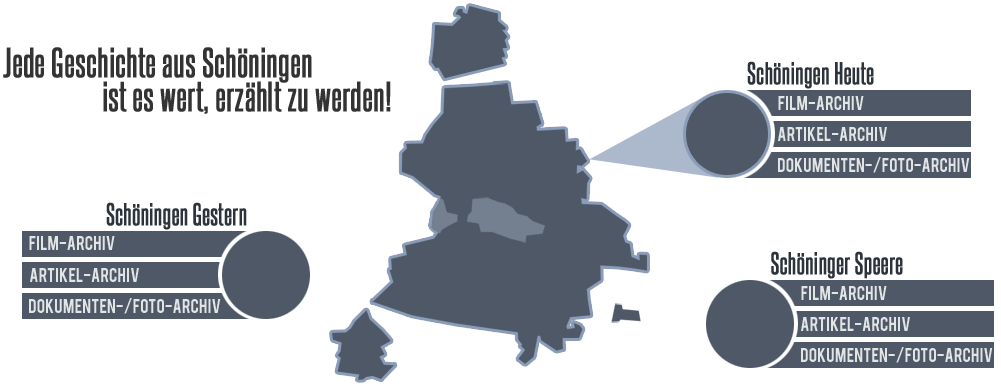- From Lagos to London: Examining the evolving landscape of nigeria news and its global impact amid shifting political currents.
- The Impact of Digital Media on Reporting Nigeria
- Political and Economic Influences on Media Coverage
- Challenges Faced by Journalists in Nigeria
- The Role of Civil Society and International Organizations
- The Future of Reporting from Nigeria: Trends and Predictions
From Lagos to London: Examining the evolving landscape of nigeria news and its global impact amid shifting political currents.
The flow of information regarding nigeria news has undergone a significant transformation in recent years. Historically, access to updates from Nigeria relied heavily on traditional media outlets – newspapers, radio, and television – often filtering information through international lenses. Now, a multifaceted network of digital platforms, social media, and citizen journalism offers a more immediate and diverse perspective. This shift has profound implications for how the international community understands events unfolding within Nigeria, impacting everything from investment decisions to geopolitical strategies. The increasing accessibility of information also presents challenges, including the spread of misinformation and the need for heightened media literacy.
This evolving landscape necessitates a critical assessment of the sources and methods used to disseminate nigeria news. The rise of independent online publications and social media channels provides alternative narratives to those presented by established media organizations. Simultaneously, the complex political and social dynamics within Nigeria often lead to biased reporting or the suppression of information. Understanding these nuances is crucial for those seeking an accurate and comprehensive understanding of developments in the country. The ability to discern credible sources from unreliable ones is paramount in the digital age.
The Impact of Digital Media on Reporting Nigeria
The digital revolution has fundamentally altered the methods of receiving and disseminating information about Nigeria. Previously, international news agencies and a handful of prominent Nigerian media houses controlled the narrative. Today, blogs, social media platforms, and online news portals have democratized the process, allowing a far wider range of voices to contribute to the public discourse. Citizen journalists, equipped with smartphones and internet access, can now report events in real-time, often providing on-the-ground perspectives that traditional media may miss. This immediacy, however, comes with inherent risks, including the potential for inaccuracies and the spread of unverified information.
This shift in the media landscape hasn’t been without its challenges. The proliferation of “fake news” and disinformation poses a significant threat to informed decision-making and public trust. It’s more important than ever to critically evaluate information sources and to corroborate reports from multiple outlets. The Nigerian government has also implemented measures aimed at regulating social media and combating the spread of misinformation, raising concerns about potential censorship and restrictions on freedom of expression. Achieving a balance between responsible reporting and protecting fundamental rights remains a key challenge.
The effect on the public is considerable, offering more direct insight but compounding the need for robust fact-checking. Many find their information through aggregator sites, which, while convenient, can inadvertently elevate unreliable sources and exacerbate the problem of misinformation. The rise of data journalism, with its emphasis on evidence-based reporting, offers a potential solution, but it requires skilled journalists and access to reliable data sources—resources that are often limited within Nigeria.
| Traditional Newspapers | 20% | 4 | Varies Depending on Ownership |
| National Television | 35% | 3 | Government Affiliated |
| Independent Online News | 25% | 3.5 | Various, Often Politically Aligned |
| Social Media (Twitter, Facebook) | 60% | 2 | High Potential for Misinformation |
Political and Economic Influences on Media Coverage
The media in Nigeria, like in many countries, is not immune to political and economic pressures. Government influence, often subtle but pervasive, can shape the reporting of events. This can manifest in direct censorship, the withholding of advertising revenue, or the use of informal pressure tactics. Political parties and powerful individuals frequently own or control media outlets, which can lead to biased coverage favoring their interests. The economic viability of media organizations also plays a crucial role. Many rely on advertising revenue and government contracts, making them vulnerable to external influence. This creates challenges for independent journalism and limits the diversity of perspectives.
The business climate, dominated by a few powerful interests, often translates into restricted media pluralism, fostering a situation where critical reporting on elites is discouraged. Economic reliance on a small number of advertisers or government bodies can compromise editorial integrity. Regulations surrounding media ownership are often outdated or poorly enforced, allowing for the concentration of media power in the hands of individuals or corporations with vested interests. Transparency in media ownership is also lacking, making it difficult to discern the motivations behind news coverage.
Foreign investment in the Nigerian media sector has the potential to bring much-needed capital and expertise, but it also raises concerns about external influence. The growing reliance on social media platforms controlled by foreign tech companies further complicates the picture, raising questions about data privacy and the potential for manipulation. Navigating these complex dynamics requires a commitment to media independence, transparency, and a robust regulatory framework.
Challenges Faced by Journalists in Nigeria
Journalists working in Nigeria face a myriad of challenges, ranging from physical threats and intimidation to legal harassment and economic hardship. Those reporting on sensitive topics – such as corruption, political instability, or human rights abuses – are particularly vulnerable. There have been numerous documented cases of journalists being arrested, detained, or even killed for their work. The lack of adequate protection from the government and law enforcement agencies creates a climate of fear and self-censorship. Economic pressures also contribute to the difficulties faced by journalists. Low salaries, limited resources, and the lack of professional development opportunities hamper their ability to produce high-quality journalism.
Furthermore, the complexities of navigating Nigeria’s diverse ethnic and religious landscape present unique challenges. Journalists must be aware of potential sensitivities and avoid exacerbating existing tensions. The rise of social media has also created new risks, with journalists often targeted by online harassment and hate speech. Support networks for journalists and advocacy groups are crucial in providing assistance and raising awareness about the dangers they face. Strengthening legal protections for journalists and promoting media literacy are essential steps towards fostering a safer and more enabling environment for independent journalism.
The Role of Civil Society and International Organizations
Civil society organizations and international bodies play a vital role in supporting independent journalism and promoting media freedom in Nigeria. These organizations provide training and resources to journalists, monitor human rights abuses, and advocate for legal reforms that protect media freedom. They also work to raise awareness about the challenges faced by journalists and to mobilize public support for independent reporting. International organizations, such as Reporters Without Borders and the Committee to Protect Journalists, provide critical support in documenting violations and advocating for accountability.
Collaboration between civil society, international organizations, and the Nigerian government is essential for creating a more conducive environment for journalism. Strengthening the legal framework for media freedom, promoting transparency in media ownership, and ensuring the safety and security of journalists are all key priorities. Capacity building initiatives for journalists are also crucial, equipping them with the skills and knowledge they need to navigate the complexities of the modern media landscape. Ultimately, fostering a vibrant and independent media sector is essential for ensuring good governance, accountability, and informed public participation.
- Promote Media Literacy among Citizens
- Advocate for Legal Reforms to protect Journalists
- Support Independent Media Outlets
- Strengthen Collaboration between Stakeholders
- Invest in Journalism Training and Capacity Building
The Future of Reporting from Nigeria: Trends and Predictions
The future of reporting from Nigeria will likely be shaped by continued technological advancements, evolving political dynamics, and the increasing demand for credible information. The rise of data journalism, artificial intelligence, and immersive storytelling techniques will transform how news is gathered, analyzed, and presented. The importance of fact-checking and verification will only grow as the threat of misinformation intensifies. The use of social media for news consumption will continue to expand, but platforms will need to address concerns about algorithm bias and the spread of harmful content.
The relationship between the government and the media will remain a key factor. Continued pressure on independent media outlets and restrictions on freedom of expression could undermine the quality and credibility of reporting. The need for greater transparency in media ownership and funding is paramount. Increased citizen participation through community journalism and hyperlocal news initiatives has the potential to further democratize the media landscape. The success of these initiatives will depend on providing access to resources and training for citizen journalists.
Adapting to these complexities requires continued investment in journalism education and professional development, fostering a more resilient and responsible media sector. The role of international support organizations remains crucial in providing resources, expertise, and advocacy for a free and independent press. The ability of the Nigerian media to navigate these challenges will ultimately determine its capacity to inform the public, hold power accountable, and contribute to a more democratic and prosperous society.
- Invest in media literacy programs for the public.
- Strengthen legal protections for journalists.
- Promote transparency in media ownership.
- Support independent media outlets.
- Encourage collaboration between stakeholders.
| Misinformation & Fake News | Media Literacy Programs, Fact-Checking Initiatives | Media Organizations, Civil Society, Gov’t, Educational Institutions |
| Threats to Journalists’ Safety | Legal Protection, Security Training, Advocacy | Gov’t, Journalists Associations, Human Rights Organizations |
| Lack of Media Independence | Transparent Media Ownership, Economic Support for Independent Media | Gov’t, Media Owners, Civil Society |
| Limited Access to Information | Freedom of Information Act Implementation, Investigative Journalism | Gov’t, Journalists, Civil Society |












